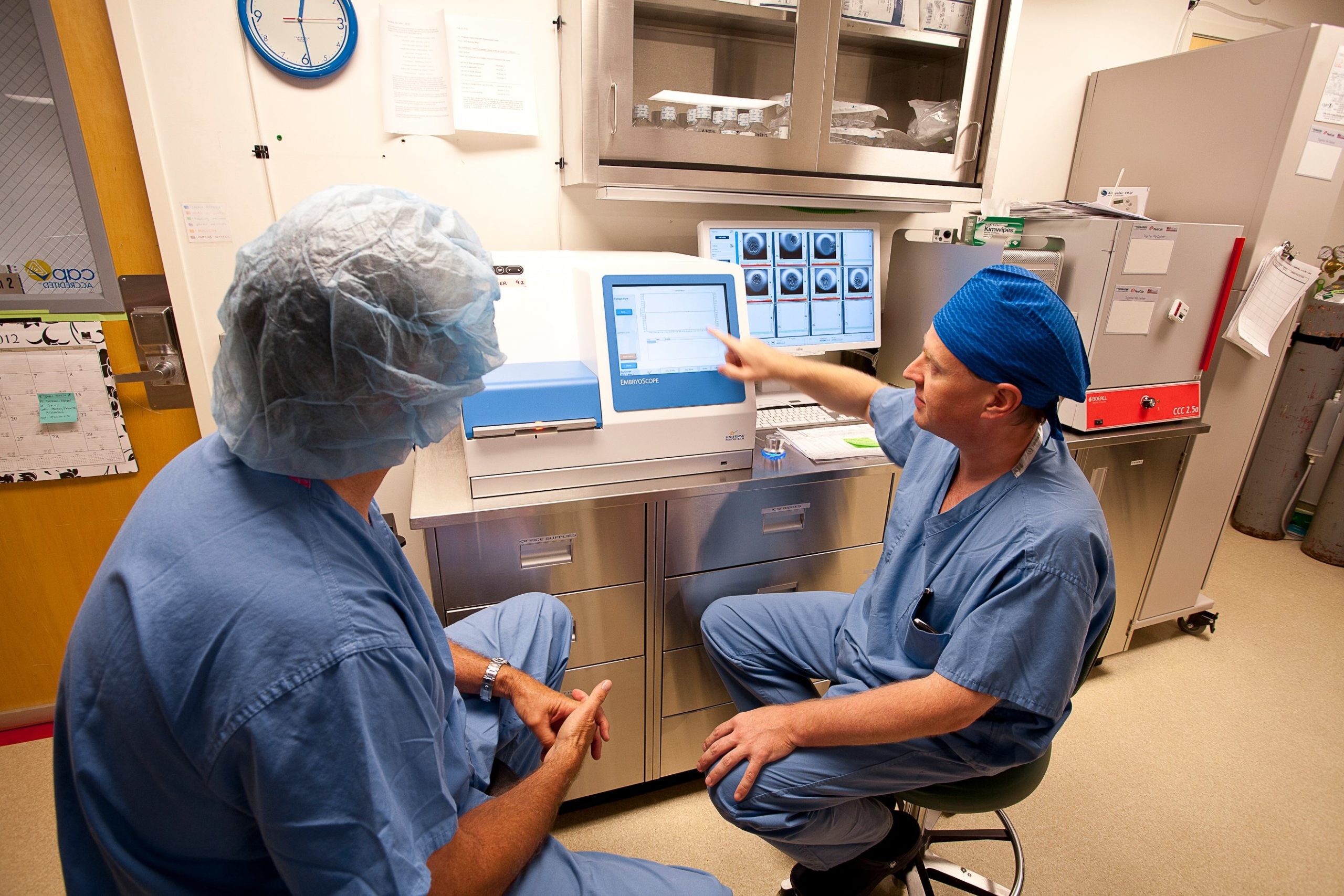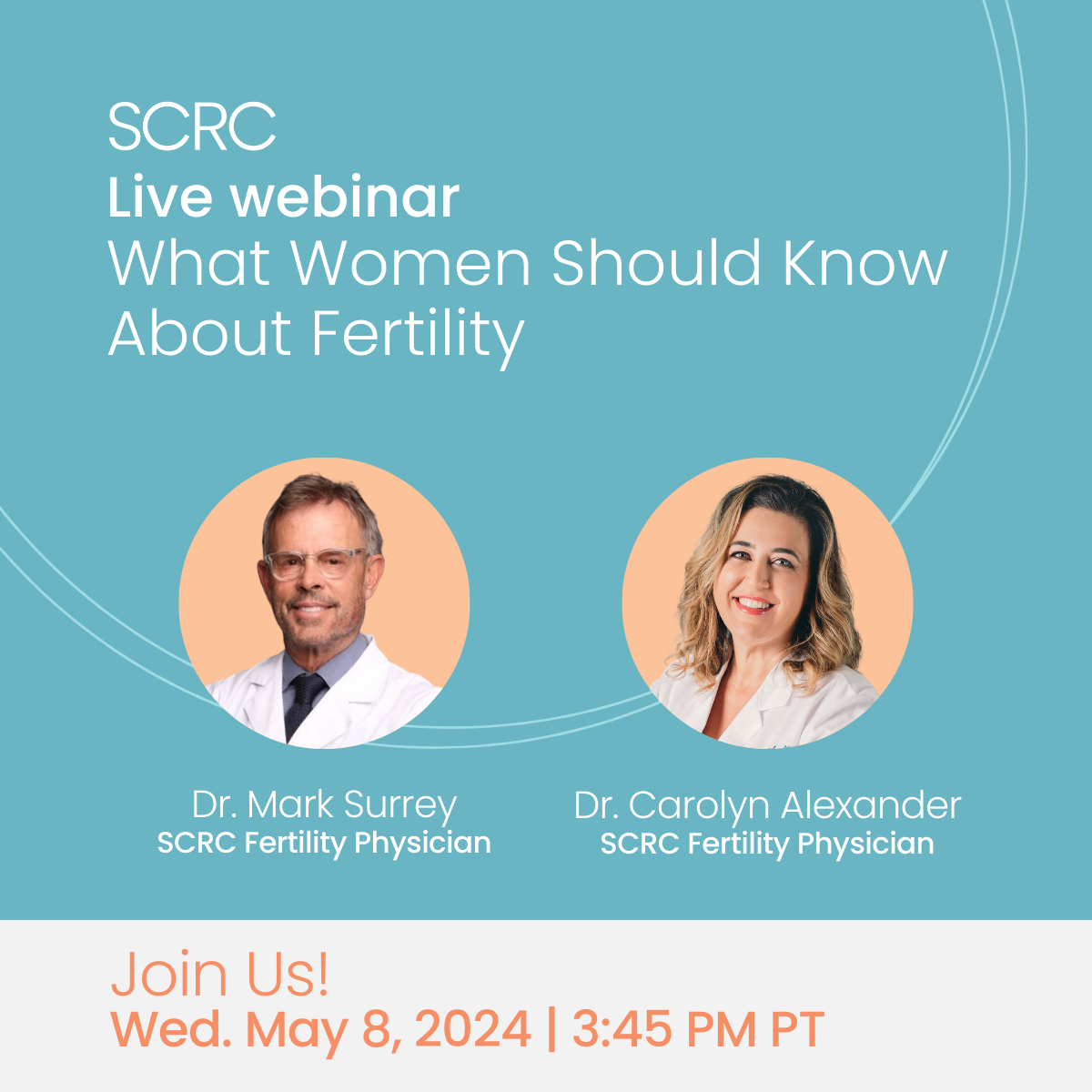Ovulation Cycle Monitoring
Careful and accurate monitoring of the ovulation cycle is at the core of all infertility treatment procedures.
Blood tests measure hormone levels, and ultrasound testing monitors the size of the ovarian follicles. Ultrasound testing is a highly reliable and safe method of tracking ovulation, and is used to assess response to medications and to help your SCRC physician predict when ovulation is most likely to occur. A vaginal ultrasound is performed at specific stages of an ovulation cycle in order to give an accurate count and measurement of follicles and eggs as they develop in the ovaries. This allows for very accurate timing for natural intercourse or artificial insemination, such as the IUI procedure, to ensure the highest rate of success. To perform the ultrasound, your fertility doctor simply inserts a small transducer (similar in shape and size to a tampon) into the vagina. The ultrasound procedure is very safe and creates virtually no discomfort.

What’s My Next Step?
Call an SCRC fertility counselor at (866) 312-0771, or click here to contact us. We will schedule a consultation for you with an SCRC fertility specialist, who will evaluate your individual condition and provide you with personalized recommendations for infertility treatment.


